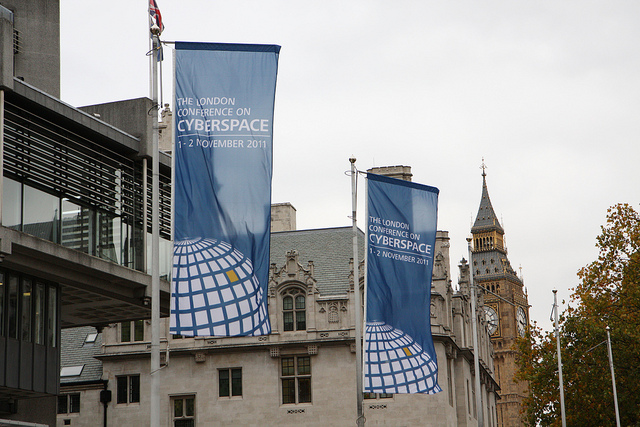 Greetings from Kuala Lumpur! The ICPC team is in Malaysia seeking Asia–Pacific perspectives on the Global Conference on Cyber Space (GCCS) to be held in The Hague later this year. The GCCS is the fourth iteration of the International Cyberspace Conference process that began in London in 2011, with subsequent sessions in Budapest (2012) and Seoul (2013). This multistakeholder process aims to build a focused dialogue on principles for governing behaviour in cyberspace and set out a future agenda.
Greetings from Kuala Lumpur! The ICPC team is in Malaysia seeking Asia–Pacific perspectives on the Global Conference on Cyber Space (GCCS) to be held in The Hague later this year. The GCCS is the fourth iteration of the International Cyberspace Conference process that began in London in 2011, with subsequent sessions in Budapest (2012) and Seoul (2013). This multistakeholder process aims to build a focused dialogue on principles for governing behaviour in cyberspace and set out a future agenda.
Despite representing 47.5 percent of global netizens and growing fast, the Asia–Pacific has long been underrepresented in international cyber discussions. As the world gathers in the Netherlands in April, it’s vital that the region’s distinct and diverse voices are represented.
GCCS 2015 will be built around several key objectives including the support of practical cooperation in cyberspace; promotion of capacity-building and expertise-exchange in cyberspace; and the discussion of norms for responsible behaviour in cyberspace. The key themes at the Hague conference will be cybersecurity, cybercrime, international peace and security, freedom and privacy, capacity-building, and social and economic growth. Those areas will help to shape the cyber ecosystem for years to come.
Asia–Pacific cyber perspectives are far more diverse and dynamic than the dominant narratives coming from the larger Asian players. ICPC’s encouraging a conversation on Twitter with the #APACgoestoNL effort, and in Kuala Lumpur we’re holding discussions with a multistakeholder representatives from 13 countries. The region requires pragmatic and flexible cyber policy approaches to grapple with the breadth of challenges that cyberspace presents. At the same time the region is home to its own creative approaches to cyber challenges that offer best practice for the global community.
The need to engage is no more apparent than this week in Singapore where ICANN52 meets to discuss the ongoing IANA transition and efforts to enhance ICANN accountability. Track live developments on Twitter with Lingua Synaptica’s Samantha Dickinson.
The region should also stay abreast of developments in New York, where the UNGGE will meet for a third time in April. Russia and China are already stirring the pot within the UN, with both circulating a new-and-improved version of their controversial ‘code of conduct’ for information security, first floated in 2011.
Back at home the halfway point for the Australian cybersecurity review approaches, so it’s worth calling on the Department of Prime Minister and Cabinet (PM&C) to aim high for its remaining work.
It’s uncertain whether or not the review process will be able to overcome the challenges outlined by Greg Austin and Jessica Woodall. Last Thursday, ICPC gathered representatives from PM&C, the Australian Cyber Secuirty Centre, CERT Australia, Australian Federal Police, and Australian Crime Commission to discuss the domestic cyber landscape. A lively discussion revealed that critical quesitons remain unanswered. These include whether or not the review will evolve into a much-needed public cyber strategy update; how to balance the need for a consistent whole-of-government approach with the fact that each department has distinct roles, responsibilities, and expertise on cyber issues; how to raise public awareness; and how best to build cooperation between government and the private sector. As the review concludes in April, it’s hoped that it’ll shed light on those and many more critical policy issues still to be resolved.
Klée Aiken is an analyst in ASPI’s International Cyber Policy Centre. Image courtesy of Flickr user Chatham House.

